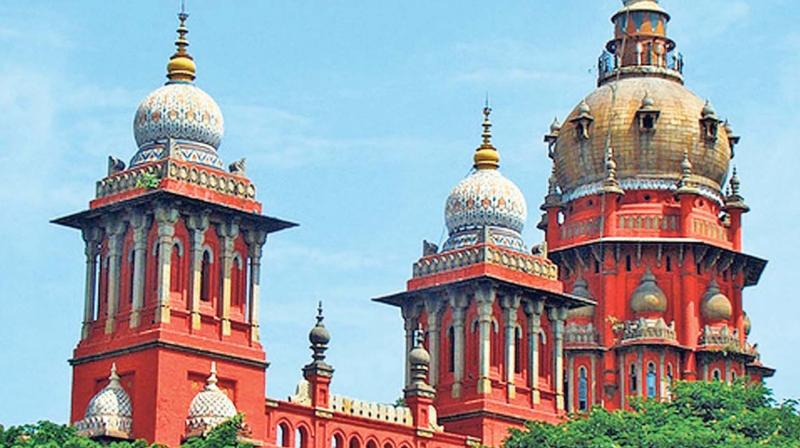Madras high court clears PG medical admission process
The classification of areas should be made based on the difficulties / challenges in reaching the health services in the areas.

Chennai: The Madras high court has quashed government orders dated March 9 and 23 notifying the remote and difficult areas for awarding incentive marks to the in-service candidates for admission to PG medical courses for the academic year 2018-19. Passing orders on the petitions from Dr P. Pravin and three other doctors, Justice S.Vaidyanathan said, “Under the guise of rectifying defects with regard to identification of remote/difficult, rural areas and primary health centres, the government has not made the declaration on the basis of geographical parameters. The present identification certainly reduces the chances of getting a seat for other candidates (general candidates) who may not be entitled to such weightage marks”.
Except the urban areas, other areas have been classified in different terminology as category A, B and C for the purpose of awarding additional incentive marks to in-service candidates working in such areas. The exercise made by the committee based on which the government orders in question were issued were liable to be interfered with and hence both the orders were declared to be illegal, the judge added.
Petitioners' counsel G.Sankaran submitted that after several rounds of litigation on the same issue last year, the state government constituted a committee to identify the remote and difficult areas for awarding incentive marks to the service candidates for admission to PG medical courses for the academic year 2018-19. Accordingly, apart from earmarking the hilly areas, the committee proceeded to classify number of districts as backward districts with areas on the premise that they were having low density of doctors, high vacancies and poor health indicators.
Based on the recommendations of the committee, the government passed an order on March 9, categorizing the areas as A, B and C. The classification of areas should be made based on the difficulties / challenges in reaching the health services in the areas as per geographical conditions.
The vacancy position, density of doctors and health indicators cannot be the criteria for identification of remote/difficult areas in as much as all these factors were not permanent features and they were liable to be changed from time to time, he added.
Meanwhile, passing orders on another batch of petitions filed by Dr.C.Sudhan and others, the judge held that 50 per cent reservation of seats cannot be accorded to the in-service candidates in PG medical admission. “A plain reading of Regulation 9 (4) and 9(8) of PG Medical Education Regulation, 2000 makes it very clear that 50 percent of the seats under the state quota cannot be reserved to in-service candidates”, the judge added.

